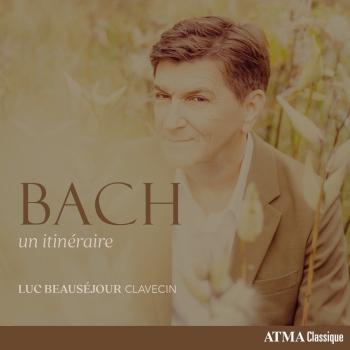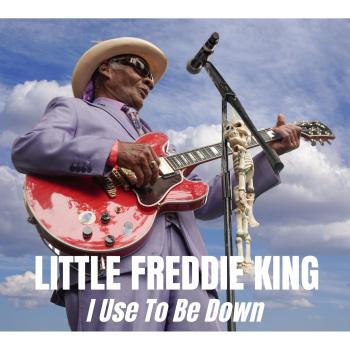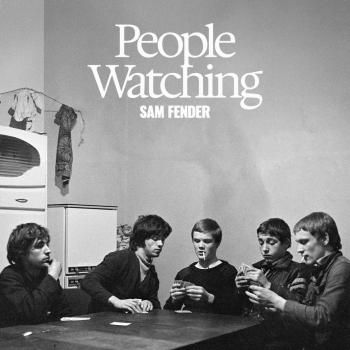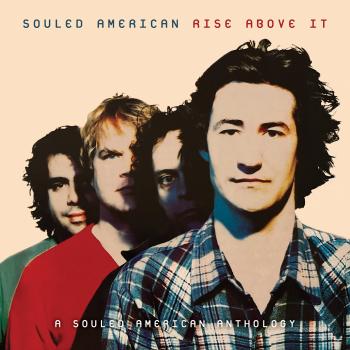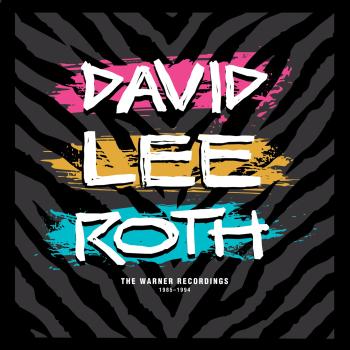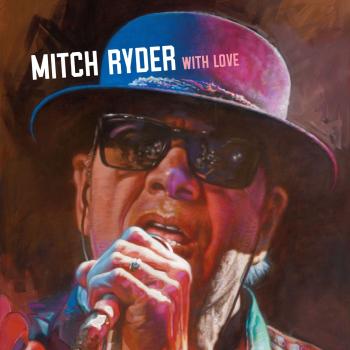
Elements Of Truth Empirical feat. Benyounes String Quartet
Album info
Album-Release:
2012
HRA-Release:
18.04.2012
Label: Naim Records
Genre: Jazz
Subgenre: Contemporary Jazz
Artist: Empirical feat. Benyounes String Quartet
Composer: Empirical
Album including Album cover
- 1 Say What You Mean, Mean What You Say 05:14
- 2 Yin & Yang 09:04
- 3 In The Grill 03:55
- 4 Out Of Sight, Out Of Mind Part 1 04:58
- 5 Cosmos (For Carl Sagan) 06:52
- 6 Simple Things 05:56
- 7 An Ambiguous State Of Mind 07:24
- 8 The Element Of Truth 07:12
- 9 Out Of Sight, Out Of Mind Part 2 02:09
Info for Elements Of Truth
British post-bop pin-up boys Empirical, in just a few short years have carved out a place as one of jazz's most exciting new bands, touring from New York to Molde, London to Montreal, and they have won numerous awards including the 2010 MOBO for Best Jazz Act and Jazzwise and Mojo Albums of the Year. Elements Of Truth is their third album, and second with the current line-up of Nathaniel Facey alto saxophone, Shaney Forbes drums, Tom Farmer bass and Lewis Wright vibraphone.
Empirical perform compositions and improvisations that express ideas taken from beyond music in a uniquely democratic style. Each member is given equal responsibility for the direction of the music in composition and in the moment of improvisation. It is this mixture of shared responsibility and openness that gives their music such a unique edge as they draw on influences from Film and TV, proverbs and sayings and even sports! So while collectively they will acknowledge musical influences from the oblique sounds of Andrew Hill and Eric Dolphy's sublime Out To Lunch, to the more contemporary stylings of Vijay Iyer or namecheck Wayne Shorter and Branford Marsalis, it is their unique ability to express what they think and feel on a range of ideas through the collaborative trial and error process of Jazz improvisation that makes them such a powerful group.
On Elements of Truth, they are joined by special guest George Fogel on piano, while Wright over-dubs glockenspiel to add an otherworldly texture to their unique brand of post-bop, and if their previous album 'Out 'n' In' celebrated the influence of Eric Dolphy on their music, Elements Of Truth is about getting back to the essence of Empirical: observing, experimenting and commenting through music.
'We live in musically unique times: We can listen to almost any music in the world at the touch of button: Music is eclectic where styles and genres are bent and blurred: This album is a comment on that. Furthermore the music is our way of making sense of the world, reflected in the titles of the pieces, which are philosophies, proverbs or the intangible parts of life.'
Amongst the records many stand-out tracks, almost too many to mention, is the deceptive Simple Things by bassist Tom Farmer, which was partly inspired by Bjork, but is based on the idea of a girl taking pleasure in the simple things in life, expressed through diatonic repetition. Facey's In The Grill refers to the space inside a man's physical reach, specifically inside a boxers reach and is about spatial awareness and the conviction to go for your ideas. An Ambiguous State of Mind, also by Farmer, is a wonderfully impressionistic piece which attempts to create ambiguity through use of an uneven meter and altered harmony. Musically inspired by Vijay Iyer but with House of Horror overtones, it was written to feature guest pianist Fogel. Farmer's spooky Say What You Mean, Mean What You Say draws on Messiaen, Steve Lehman and Vijay Iyer and attempts to illustrate its message through the juxtaposition of free and rigid passages. Finally Lewis Wright contributes the title track (his first recorded composition with the band), The Element of Truth, explores the idea of subconscious truth, especially within a dream state. It has a deliberate ambiguity within the feel/melody which gives the music a shimmering, ethereal quality but one underwritten by a solid pulse.
It is this ability to mix the off-centre within a powerful framework and the ethereal and the earthy that makes Empirical's music so powerful and one that demonstrates that while truth is a subjective idea, exploration through improvisation can result in an empirical proof: One that proves that these four young Brits are one of jazz's most potent forces!
'Empirical burst onto the UK jazz scene in 2007, with a self-titled debut album that proclaimed them the new young lions: feisty 20-somethings with bags of energy, studiously channelled into creating a distinctly retro style of acoustic jazz that owed more to late-50s/early-60s Blue Note recordings than it did to anything happening on the streets of 21st century London. During 2008, the band underwent line-up changes and took a step towards the leftfield with an ongoing project exploring the musical legacy of Eric Dolphy – aided by the recruitment of vibraphonist Lewis Wright, and culminating in the 2009 follow-up album Out ‘n’ In, which investigated the wonky mid-60s strut of Dolphy’s Out to Lunch. Now, with this third album, Empirical have come up to date – or at least as far as the 1990s.'
'Operating as a core quartet of Wright on vibes and glockenspiel, double-bassist Tom Farmer, alto saxophonist Nathaniel Facey and drummer Shaney Forbes – plus special guest and long-time collaborator George Fogel on piano – Empirical have made a decisive move away from swinging jazz and closer to the kind of cerebral groove first outlined in New York in the late-80s/early-90s. In a way, it was inevitable they should follow this route: it’s an aesthetic that has continued to inspire young jazz musicians on both sides of the Atlantic just as much as those 60s recordings that first got Empirical fired-up.
Opener Say What You Mean, Mean What You Say centres around a circular vibes figure, launching into a zesty math-funk not dissimilar to the recent output of Chicago’s minimalist-influenced Claudia Quintet. But it’s on tracks like In the Grill that the most obvious influence is heard, with jerky, fractured drums and Facey’s frenetic yet precise alto recalling the 80s experiments of M-Base artists such as Steve Coleman. There are other, more meditative moods at work, too – largely thanks to the diaphanous sonorities generated by the combination of piano and vibes. Cosmos (For Carl Sagan) makes a brief return to a Dolphy-ish limp before jettisoning into a spectral space walk, like Morton Feldman on an interstellar vacation. Empirical are crashing irresistibly through the decades. Next stop, 21st century.' (Daniel Spicer, BBC Music Magazine)
Nathaniel Facey, alto saxophone
Lewis Wright, vibraphone, glockenspiel
Tom Farmer, double bass
Shaney Forbes, drums
Guest: George Fogel, piano
Empirical besteht aus Nathaniel Facey am Altsaxophon, Lewis Wright am Vibraphon, Tom Farmer am Kontrabass und Shaney Forbes am Schlagzeug (auf dem Album ist als Gast auch Julian Siegel an Tenorsaxophon und Bassklarinette zu hören).
Alle sind sie Mitte zwanzig, und dennoch besticht jeder einzelne durch eine Kombination aus Virtuosität und künstlerischer Reife, die selbst bei einem weniger jungen Menschen noch erstaunlich wäre. Zusammen entfalten die vier ihre Kreativität derart souverän und mit solchem Einfallsreichtum, dass man ohne Übertreibung sagen kann, dass sie bereits die gesamte Jazzwelt haben aufhorchen lassen.
Musiker vom Kaliber von Nathaniel, Lewis, Tom und Shaney sind nicht etwa von Natur aus Meister ihres Fachs, sondern werden es durch jahrelanges hingebungsvolles Üben und Lernen. Man könnte sich fragen, wie ein Mensch in so jungen Jahren schon so viel geübt haben kann.
Fest steht dagegen, dass alle vier ihr heutiges Können nicht nur ihrem eigenen Einsatz verdanken, sondern auch den Chancen, die London jungen Jazzmusikern seit Mitte der Achtziger bietet. In einer Zeit, in der der Jazz in den Massenmedien regelmäßig totgesagt wurde, stellte man sich in London gegen den Trend. Musiker wie Courtney Pine und Ensembles wie Loose Tubes hauchten der Londoner Jazzszene neues Leben ein und machten den Jazz wieder zu einer Kunstform der Jugend.
Die Nachwirkungen dieser Zeit sind heute noch zu spüren – und dazu gehört zweifelsohne auch Empirical.
This album contains no booklet.

